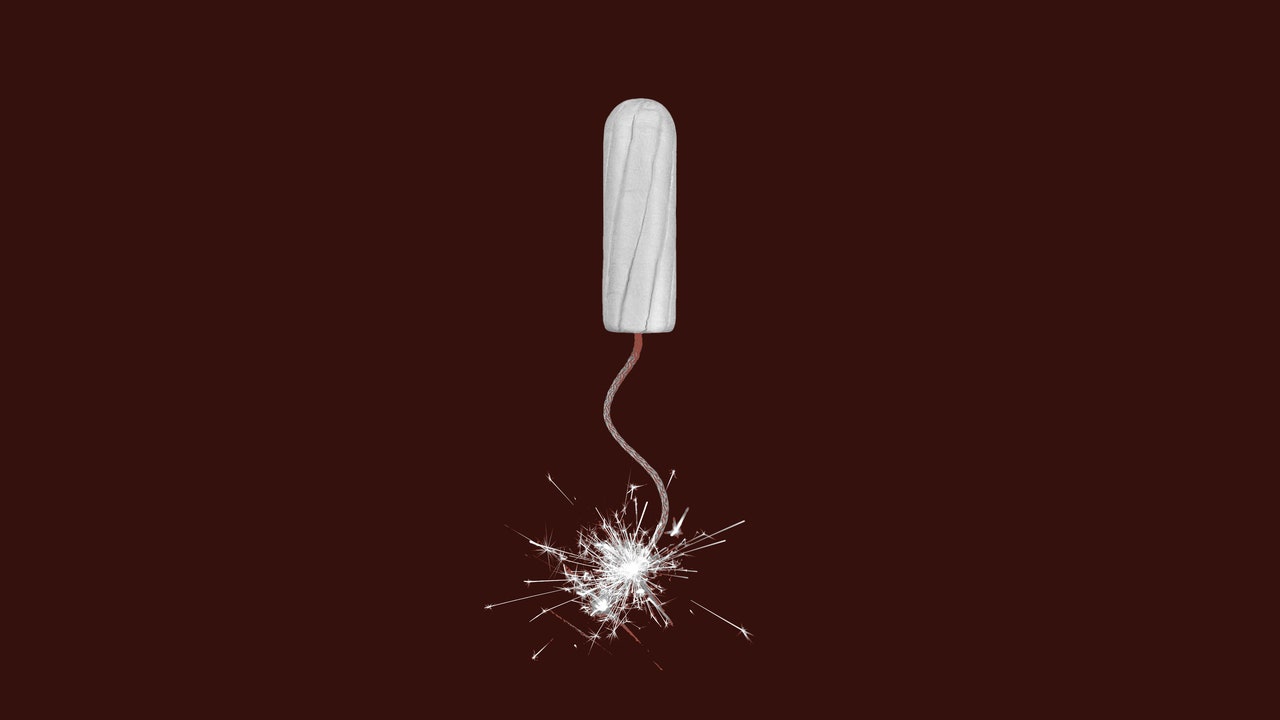Should you be worried about lead and other toxic metals in your tampons? That’s the question on everyone’s mind this week following the release of a new study that has users of the hygiene product on edge.
The study, published in the August edition of the journal Environment International, found that “several toxic metals, including lead” were detected in tampons that the researchers purchased from brick-and-mortar stores in New York City, Athens, Greece, and London, plus from two “major online retailers.” Researchers studied the concentrations of 16 metalloids in 30 tampons across 18 product lines from 14 unnamed brands (both brand-name and “store-brand”). Their report states that they found “elevated mean concentrations” of lead, cadmium, and arsenic in all the tampons tested. They also found that “lead concentrations were higher in non-organic tampons,” while organic tampons had higher levels of arsenic. The highest concentration of any metalloid found in the tampons overall was zinc.
So what does this mean for tampon users? Should people immediately throw theirs away and switch to another type of menstruation product for good? It’s understandable that seeing the words “lead” and “arsenic” associated with something you put inside your body on a regular basis would set off alarm bells. Both of those metals can contribute to some very serious health issues—especially if you’re thinking about having or adding to a family—but it’s not necessarily worth freaking out just yet.
“Users should stay informed but not panic,” says Dr. Lucky Sekhon, M.D., a board-certified reproductive endocrinologist and OB-GYN at RMA New York. “The study found trace amounts of toxic metals in tampons, but the levels were generally low,” she explains, adding that there is “no indication” that these metals at the detected levels can leach into the body. “Given the limited amount of exposure to tampons—generally used for four to seven days per month—and the small amounts of heavy metals detected, it is likely safe to continue using tampons.”
While the summary findings seem alarming at first, it’s worth noting that there are a lot of “maybes” regarding this study. For one, researchers didn’t share which tampon varieties they studied, so, despite what you may have heard on social media in the past few days, users can’t know for sure whether their specific brand was impacted. And without knowing which companies are making said tampons, “it is difficult to identify… if there is a specific country or source of where the contaminants are from,” explains Dr. Meleen Chuang, MD, chief of obstetrics and gynecology at NYU Langone Hospital Brooklyn. Dr. Chuang points out that some of the metalloids the study calls out are being added intentionally during production. “The study notes that metals such as calcium and zinc are intentionally added to help with odor control,” she says. The FDA notes that lead present in food often occurs because the lead that was once commonly used in paint, gasoline, and other products has leached into the soil, which in turn shows up in crops. It’s possible (though, again, we can’t know for sure) that the same is happening to the cotton that’s used to make many tampons.

